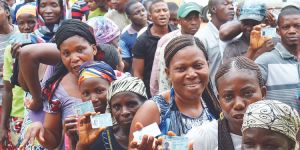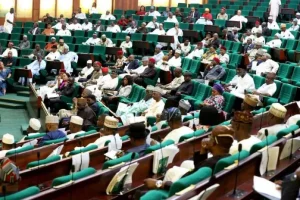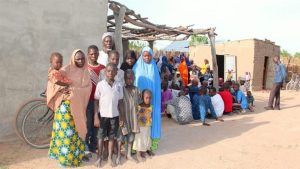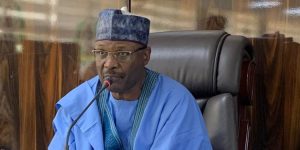For some time now, the issue of the Tax Reform Bills sent to the National Assembly from the Executive arm of the Tinubu administration, had been the contentious matter. While majority of Nigerians supported the bill, believing that it was capable of harmonizing the numerous kind of taxes collected from Nigerians at different levels of government, and guaranteeing for all an equitable tax administration in terms of collection and distribution, a group of Northerners, including all the Governors of the 19 Northern States, were averse to the bill, raising a serious concern of how they think it was going to put the Northern State at a disadvantaged position. The call for the withdrawal of the bills from the National Assembly was first made by members of the economic council, involving Governors of all the 36 States and headed by the Vice President, and other Senators from the Northern part of the country. The calls were unheeded as the presidency vowed to follow it up to a logical conclusion at the National Assembly.

Under normal circumstances, since the bills had reached the National Assembly and had even passed the first and second readings, one should expect the legislative work on it to reach a conclusion, where the outcome of what becomes of it should be determined by members of the House of Assembly, where the All Progressive Congress party (APC), which also is the ruling party, has the majority in both of the Houses. To the greatest surprise of Nigerians, the news broke yesterday that the bills have been withdrawn. This development paints a clear picture of how divided the All Progressive Congress party (APC) is and by magnifying the dichotomy between the North and the South. By the withdrawal of the bills from the House of Assembly, the weakness of the Executive and how cowardly it has become, has been exposed. Had the All Progressive Congress party (APC), which is the ruling party under the watch of President Bola Ahmed Tinubu done its homework thoroughly, the disastrous end of the bills in the National Assembly would have been avoided.

Some of the implications of this development include how suspicious the Northerners are about most of the policies of the Tinubu’s administration, which they have consistently referred to as being anti-North. It also serves as a prediction of what is likely to happen to the second term bid of President Bola Ahmed Tinubu come 2027, and a pointer to a bad omen for the All Progressive Congress party (APC) administration. Under normal circumstances, with the Tax Reform Bills that have so much to do with the sharing formula affecting all the federating units, one should expect that the Presidency should have been very careful by making adequate consultations and achieving consensus, before presenting them to the National Assembly for passage into law. This further confirms how un-articulate the Tinubu administration has been regarding how most of its policies are, in practice and to Nigerians.
Another fundamental problem that the Tinubu administration is faced with is that of the budget. A budget is a comprehensive tool that guides policy, promotes fiscal responsibility, fosters transparency, and contributes to the overall well-being and stability of a nation. Going by the importance of what a budget is to any country, one should expect that its passage by the House of Assembly requires a painstaking and thorough scrutiny, which may take not less than 6 months before a conclusion of its viability and credibility is arrived at. In the case of the Executive and the Legislature of Nigeria, the 2025 budget that is expected to be passed and signed into law by the end of December has not had serious work commenced on it by the Legislature, even as we speak right now. What the Legislature will end up doing, is to glance at it and catch a gleams of what its contents are and quickly pass it, just to meet the deadline, regardless of how realistic and responsible the document is, regarding its ultimate aims and objectives.

Nigerians have a big problem in their hands and this is nothing other than the leaders that are in the saddle. Most hypocrites always see the military regime as a cancer, which is a terminal disease, and have done everything possible to discredit it, whereas, a civilian administration that claims to be in democracy but which cannot make available the dividend of democracy to the masses, to a perceptive and right thinking human being, is worse than a military regime. It is now becoming crystal clear that the choice of democracy over a military regime is just a selfish and hypocritical adventure by politicians for the enthronement of what fits in for description as state capture, which is not different from what the military regime does using guns to capture the State.

The journey to 2027 in Nigeria is interesting and realities are beginning to dawn on Nigerians. The question on whether Nigerians will choose to die on their feet or live of their knees, or go through the narrow road or through the wide road, await answers and only time will tell. The narrow road accommodates just a few and is indicative of quality and not quantity, while the wide road is for many, including people of questionable characters such as the Independent National Electoral Commission (INEC) Chairman, Professor Mahmood Yakubu. To avoid a situation where Nigerians will mistake the wide road for the narrow road, why can’t we call today the harvest day for Nigeria, where the chaffs are to be removed from the wheats, and the wicked lieutenants from around the king. The most important electoral reform that is needed in 2027 is the overhaul of the Independent National Electoral Commission, where the position of the Independent National Electoral Commission (INEC) Chairman will be advertised and people of honesty and integrity be hired, for until this becomes the way to go, the way out will never be the way through. God bless Nigeria.
By Samuel Tunji Adeyanju







Leave a Reply